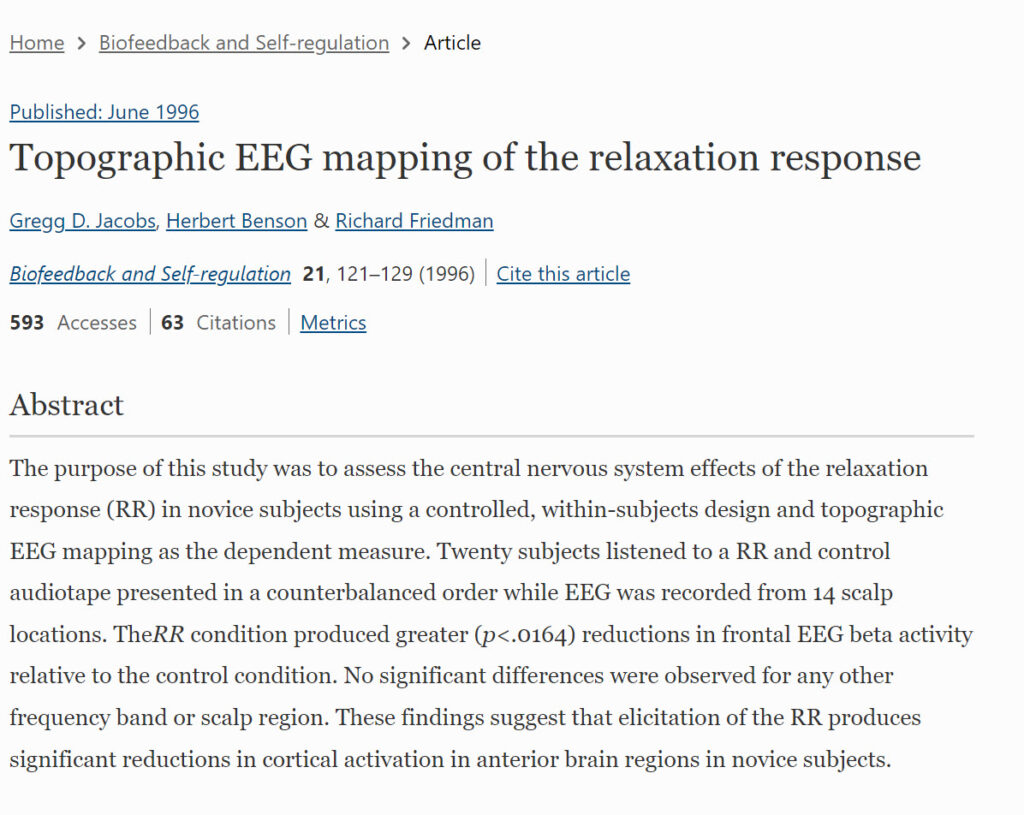Publication
Biofeedback and Self-regulation
Volume 21, pp. 121-129
Abstract
The purpose of this study was to assess the central nervous system effects of the relaxation response (RR) in novice subjects using a controlled, within- subjects design and topographic EEG mapping as the dependent measure. Twenty subjects listened to a RR and control audiotape presented in a counterbalanced order while EEG was recorded from 14 scalp locations. The RR condition produced greater (p < .0164) reductions in frontal EEG beta activity relative to the control condition. No significant differences were observed for any other frequency band or scalp region. These findings suggest that elicitation of the RR produces significant reductions in cortical activation in anterior brain regions in novice subjects.
Web and Email Links
Related Listings
Journal
PLOS ONE
Background Poor psychological and physical resilience in response to stress drives a great deal of health care utilization. Mind-body interventions can reduce stress and build resiliency. The rationale for this study is therefore to estimate the effect of mind-body interventions on healthcare utilization. Objective Estimate the effect of mind body training, specifically, the Relaxation Response Resiliency Program (3RP) on healthcare utilization. Design Retrospective controlled […]
Journal
Nature
Social-evaluative stressors—experiences in which people feel they could be judged negatively—pose a major threat to adolescent mental health1,2,3 and can cause young people to disengage from stressful pursuits, resulting in missed opportunities to acquire valuable skills. Here we show that replicable benefits for the stress responses of adolescents can be achieved with a short (around 30-min), scalable 'synergistic mindsets' intervention. This intervention, which is a self-administere […]
Journal
Journal of Integrative and Complementary Medicine
Several hundred peer-reviewed studies in the past 20 years have shown that the relaxation response and mind–body interventions are clinically effective in the treatment of many health problems that are caused or made worse by stress. Recent studies show that mind–body interventions may improve prognosis in coronary heart disease and can enhance immune functioning. It is hypothesized that mind–body interventions reduce sympathetic nervous system activation and increase parasympathetic […]

